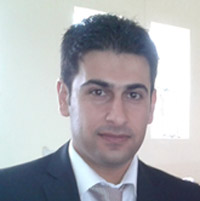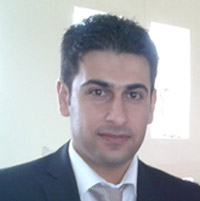Vanquishing ISIL and Role Of KRG in Dispute Territories Toward Arab-Sunni Tribes

Within the ISIL’s power expansion in the northern of Iraq, the large members of Arab-Sunni community has followed the ISIL’s agenda and that these Sunni people have roughly showed their sympathy to the ISIL and fought against those people who ISIL calls infidel (namely Kurds in general, Turkmen, Christian and Yazidi in particular). Based on this reality, the ISIL has created significant tensions between Sunni on one side and other communities on the other side. The ISIL has been establishing a policy that any person or group who does not follow the ISIL’s agenda deserves death (1).Therefore, Yazidi, Turkmen, Christian, Shiite and Kurds are measured under the ISIL’s assessment for infidel.
Recently Peshmarga have greatly defeated the ISIL from Kurdistan and ‘disputed territories’ namely Shanjar, Zummar, Tall Afar, Jaluluah and Saaiydiyah etc. these areas mainly Yazzidi, Turkmen, Christian, Kurds and Arab-Sunni inhabited. One might be asked question, how does the KRG treat with Arab-Sunni community as the latter have already assisted and followed the ISIL’s policy; should the KRG treat the Arab-Sunni people under the definition of terrorism or should the KRG create and follow an environment of community’s reconciliation and conflict resolution?
If we briefly traced back the history of Kurdistan then we comprehend the reality that the Kurds had always treated with its opponents in a very gentle way, even if Kurds had had a very miserable and tough experience with them. The period of Kurds uprising in 1990 can be viewed as a good example, the Peshmarga and people of southern of greater Kurdistan released large number prisoners that estimated 1000 of Saddam’s soldiers, which they were captured by Kurds during the uprising in 1990. This soft action took place while only few years before the event of Kurds uprising the Iraqi soldiers under the Saddam authority used and bombarded chemical weapon on Halabja city as well as the process of Kurds genocide (Al-Anfal campaign) that the Iraqi government in a very brutal ways killed and tortured dozen of thousands of Kurds during 1980-1988 (2).
Academically, the tension and the challenge of ideology between communities have viewed as potential difficulties and as elusive as ever in particular when it comes to discover the solution. If it suppose the Kurds authority and Peshmarga permanently set up its basis in these territories and if the KRG wants to maintain the security stability in these areas – where Kurds lately cleaned from ISIL – then Kurds should have to burden some fundamental responsibilities. These responsibilities can be interpreted under the line of normalize and reduce the tension as well as create the environment of reconciliation between the Arab-Sunni community and others. As we have comprehended that the growth of Sunni’s sympathy for ISIL is partly because of political reason – the former Iraqi regime (Maliki Government) systematically marginalized the Sunni community – then the KRG should essentially look for political and social solution in frame of reconciliation and conflict resolution (3).
The process of reconciliation, conflict resolution as well as elimination the community’s tension are assessed by three basic principles: Peace-keeping, Peace-making and Peace-building. In the case of ISIL and Arab-Sunni fighters in Iraq as we attempt to analyse the period of after removing the ISIL in the Iraq and Kurdistan region territories, therefore the process of peace-keeping cannot simply put on practice. This is because this process is only used to halt the bloodshed of warfare but in our case study supposes to erase the ISIL in area and normalize the relations between Iraqi communities in disputes area under the KRG’s domination. For this reason we directly jump to analyse and make a link of our case study with the other two processes namely Peace-making and Peace-building.
Peace-making
In this process the role of conflict resolution in ongoing wars to the question of war ending. The Peace-making process refers to actions aimed at bringing two or more hostile parts an agreement, through diplomatic negotiations and with their consent. However, this paper should not run away from reality that this process is difficult to put in practice particular when it comes to ‘intrastate agreement’ such as author Ramsbotham et al (2012: 172) compare the range of conflict resolution for ‘interstate’ and ‘intrastate’ agreement, they mention that interstate peace agreements have been easier to conclude than intrastate agreements: only quarter to the third of modern civil wars have negotiated. Whereas more than half of interstate wars have been (4).
Linking our case study as intrastate war to the process of peace-making, if the KRG wants to successfully accomplish this process then it needs to follow some significant steps: firstly it should pretend itself as a third party, the third party – here – is delineated as a mediator that the KRG should carefully use its diplomatic power (not military power) to normalize and eliminate the range of tension between the communities and tribes in the area, in particular Yazzidi vs. Arab-Sunni.
Specified the Yazzidi case is due to reality that since the ISIL power expansion Yazzidi has been desperately suffered and their case can be literally identified under the UN’s definition for “Convention on the Prevention and Punishment of the Crime of Genocide” (5).
Based on this perception, Yazzidi might take a rough reaction and resistance against Arab-Sunni community in coming future periods. This will be another difficulties for security instability in situation. Thereby, the KRG (either unilaterally or bilaterally with the Iraqi government) should work on the line of reconciliation, mediation and bring down the range of tensions between communities and tribes. This is come to the ground on the basis of three fundamental strategies:
Firstly, Communication-Facilitation
The KRG should provide information and facilitate cooperation among the antagonistic communities. It establishes a direct channel of communication and it allows the communities to explore mutual advantageous outcomes.
Secondly, Procedural Strategies
The KRG attempts to exert control and influence over procedural matters such as agenda formulation, timetables, media access and the structure of the meetings. Power and creativity important to remove obstacles.
Finally, Directive Strategies
The most robust and intense form of reconciliation, adopted when the mediator (KRG) believes settlement is close. The mediator attempts to shape the content of the agreement through carrots and sticks.
Peace-building
Comparing to other two process the peace-building is delineated as the most difficult task that the Kurdistan Regional Government should work on. Peace-building is core of the conflict resolution field, this is perceived as the long-term process that follows the formal peace process, that is, reconciliation building social relationship and institutions. In a broader conception, peace-building can also mean a gradual change in attitude with regard to conflict prevention (6).
The KRG, in the case of Shinjar (in-particular) and other disputed areas, needs to prudently working on that situation of how to ‘structurally’ change almost all previous difficulties. This comes to the ground with implementing these following basic segments:
Firstly, the KRG needs to build up economic infrastructure for new liberate territories. In this regard, it should help the inhabitant to re-constructing their destroyed building, shops and etc. as well as creating the job opportunity for inhabitants; secondly, it is potentially required that the KRG establishes a process of compensation and reconciliation, it clears that large number of Arab-Sunni tribes have been commitment to the terrorist assistance (ISIL), on the other side, the community of Yazzidi have been widely victimized by the ISIL in terms of economy, psychology, physical, ideology and etc. Based on this perception – to maintain the security situation and to curb the cultivated future of community challenge – the KRG needs to focus on strategy of forgiveness and compensation. Technically, the process of forgiveness is potentially difficult but simultaneously the process of normalization and securitization highly need this process.
To sum up, this article sketched out of how to maintain the future security situation in Kurdistan. The current successes of Peshmarga to vanquish the terrorist group in south of greater Kurdistan territories (including the areas outside of the KRG authority) is paved a way for the KRG to face the imminence difficult tasks namely the normalization and elimination tension and challenge between Arab-Sunni community (backing ISIL) with other communities in the areas. The paper pointed for two fundamental re-solutions: peace-making and peace-building. These points analysed as vital principle to end the future instability in the region.
1) Frederik Pleitgen (2014), ‘Author's journey inside ISIS: They're 'more dangerous than people realize' CNN, 25 December, http://edition.cnn.com/2014/12/22/world/meast/inside-isis-juergen-todenhoefer/index.html
2) Mike Harman (2007), ‘1991: The Kurdish uprising’, libcom.org, July 22, https://libcom.org/library/1991-kurdish-uprising
3) Michael Gunter (2014) ‘The Origins of ISIS’, Gulan Media, November 1, http://www.gulan-media.com/english/articles.php?eid=18&id=184
4) Ramsbotham O, Woodhouse T & Maill H (2012), ‘Contemporary Conflict Resolution’, Polity UK.
5) Rhona K. M. Smith (2014), ‘International Human Right’, Oxford University Press, UK.
6) Robbert F. Kennedy Center for Justice and Human Rights (2014), ‘Peace-Making, Peace-Keeping, Peace-building’, http://rfkcenter.org/peace-making-peace-keeping-peace-building
Dlsoz Hawrami is a Kurdish writer and academic. A Salahaddin University-Kurdistan graduate with a Bachelor’s degree in English Language, and Deakin University-Australia graduate with a Master’s degree in International Relations

 Dlsoz Hawrami
Dlsoz Hawrami






